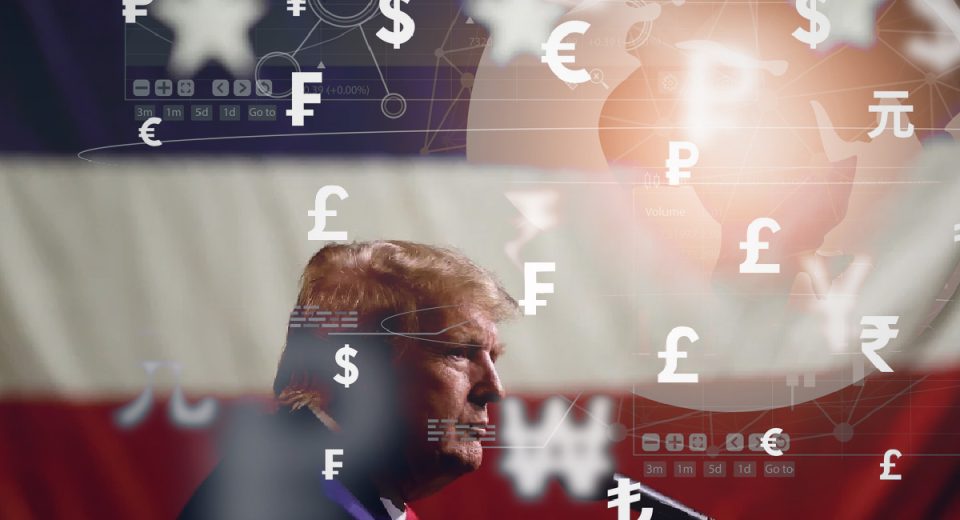How China’s Economic Growth Impacts the Global Financial Markets

Financial markets around the globe are now highly integrated, allowing traders from one region to invest in the financial instruments of other regions. Cross-listing of securities across borders, cross-country hedging, portfolio diversification, and 24-hour trading in financial instruments have deepened the correlation in the global financial markets. This globalisation means that developments and events in one region influence the prices of different financial instruments and China is among the major economies that moves markets.
China’s reopening in early 2023, after three years of covid-restrictions, lifted investor sentiment in the global financial markets. The celebrations proved to be too early, as the Chinese economy did not perform as hoped. By the third quarter of 2023, disappointing reports of China’s economic growth weighed down on various financial instruments.
Traders from around the world keep a look out for China-related news and monitor the economic calendar for data from the country. By why are announcements by the Asian county such market movers? Here’s a look at how various markets are impacted by China’s economic growth.
Energy Markets
The US is the world’s largest consumer of crude oil and China is a far second. However, while the state of the US economy does impact oil prices, China has a far greater impact. This is because the US is also an oil producer, making China the largest importer of oil in the world. The Asian nation surpassed the US as the world’s largest crude oil importer in 2017, accounting for more than 20% of the global imports, a crown China continues to hold.
Demand for oil from China moves crude prices in the global markets. Stronger economic growth translates to higher demand for oil both in manufacturing and transportation. Following the reopening of China’s economy after covid restrictions, oil demand rose by around 11% in the first half of 2023. Similarly, any news of a slowdown in China’s economic growth exerts pressure on oil prices. Concerns about a sluggish recovery of the Chinese economy led to three straight weeks of losses for crude oil in May 2023.
Countries with a large population and more volatile economic growth, like China and India, tend to have a stronger impact on crude oil prices than regions with more stable growth and low population, like the EU.
Equity Markets & Stock Indices
Investors seeking to diversify their portfolios add various international stocks, of which Chinese equities tend to form a major share. Over the years, China’s domestic capital markets have deepened and become integrated with the global capital markets. Chinese stocks make up close to one-third of the MSCI Emerging Market Index.
Chinese stocks are traded on the Shanghai, Hong Kong, and US stock exchanges. Shares of more than 260 Chinese companies trade in the US stock exchanges, representing more than $1 trillion of market capitalisation. Some of the biggest names include Alibaba, PDD Holdings, NetEase, JD.com, Baidu, Li Auto and Nio. The prospects of these giants depend on China’s economic growth, which impacts their share prices and moves stock indices in the US.
China is the world’s second-largest importer of goods and represents a massive market. Ever since the country joined the World Trade Organisation in 2001, its imports and exports have soared, with goods imports surpassing the $2.7 trillion mark in 2022. The state of its economy determines the fate of companies around the world and impacts their respective equity markets. Shares of French luxury goods companies LVMH and Hermès International fell sharply after China reported disappointing GDP growth for the second quarter of 2023.
The Asian nation is also known as “The World’s Factory,” representing almost 30% of the global manufacturing output. The easy availability of low-cost materials adds to the profit margins of companies in other countries. The importance of this was highlighted by the supply chain disruptions in 2020 and 2021, which cost companies millions of dollars.
Forex Markets
China has the world’s highest foreign exchange reserves, worth more than $3 trillion. The massive reserves are used to buy US debt, which the US government uses to fund its budget deficit. The state of the Chinese economy impacts the Asian nation’s capacity to buy US debt. This in turn impacts the US economy and the US dollar.
China is the largest trading to Australia, Japan, South Africa, Russia, South Korea, Vietnam, and Taiwan. The country was the largest trading partner to the US till 2023, when it was surpassed by Mexico. Economic growth or challenges in China trickle down to these countries and impact their currencies.
Commodities & Metals
China is among the largest producers and consumer of commodities and metals. China imports billions of dollars of seeds and grains and is the world’s biggest importer of copper and iron & steel. Fluctuations in the demand for these cause volatility in the prices of commodities in the global markets.
China has been the world’s growth engine for over four decades. Even with restrictions, the country contributed more than 18% of the global GDP in 2022. Also, China is the world’s second-largest economy after the US and the composition of its GDP growth can spill over to other economies. So, any news related to the Chinese economy has an impact on market sentiment around the world and influences prices in the global financial markets.
Economic Data to Watch
GDP growth is by far the most important data. However, this is reported only once a quarter and is a lagging indicator. Several economic releases give an indication of how the economy is fairing and have the power to move markets. These are:
- Manufacturing PMI
- Services PMI
- Balance of Trade
- Foreign Exchange Reserves
- Inflation
- New Yuan Loans
- House Price Index
- Industrial Production
- Retail Sales
- Unemployment Rate
To Sum Up
- China’s economic growth influences various financial instruments.
- China is the largest importer of crude oil and any slowdown in economic growth exerts pressure on oil prices.
- Chinese stocks make up around 30% of the MSCI Emerging Market Index.
- Shares of big Chinese companies trading on the US stock exchanges impact US stock indices.
- Stocks of companies that have exposure to China, like Tesla and Apple, are impacted by the country’s economic growth.
- China is the largest trading to several countries and its economic growth trickles down to these nations and their currencies.
- China is among the largest producers and consumer of commodities and metals and fluctuations in demand can cause volatility in their prices in the global markets.
- Look out for GDP growth and other important data when trading.
Disclaimer:
All data, information, and materials are published and provided “as is” solely for informational purposes only and are not intended nor should be considered, in any way, as investment advice, recommendations, and/or suggestions for performing any actions with financial instruments. The information and opinions presented do not take into account any particular individual’s investment objectives, financial situation, or needs, and hence do not constitute as advice or a recommendation with respect to any investment product. All investors should seek advice from certified financial advisors based on their unique situation before making any investment decisions in accordance to their personal risk appetite. Blackwell Global endeavours to ensure that the information provided is complete and correct but make no representation as to the actuality, accuracy or completeness of the information. Information, data, and opinions may change without notice and Blackwell Global is not obliged to update on the changes. The opinions and views expressed are solely those of the authors and analysts and do not necessarily represent that of Blackwell Global or its management, shareholders, and affiliates. Any projections or views of the market provided may not prove to be accurate. Past performance is not necessarily an indicative of future performance. Blackwell Global assumes no liability for any loss arising directly or indirectly from use of or reliance on such information herein contained. Reproduction of this information, in whole or in part, is not permitted.




